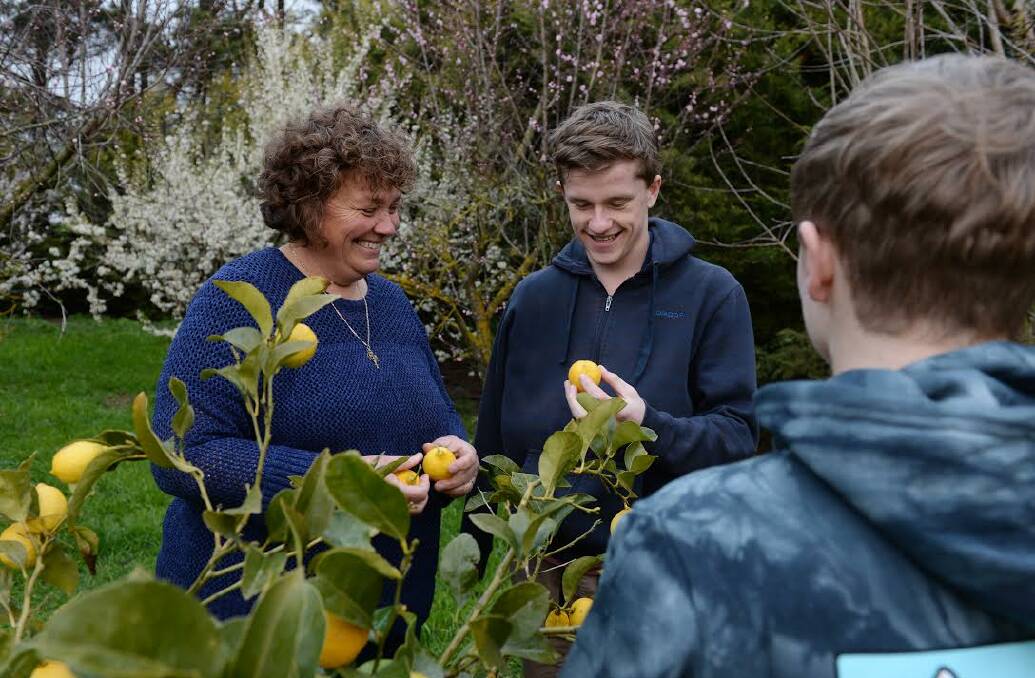
“You wouldn’t kick your own child out at 18. They’re doing year 12, the most important year, so why would you kick children out of foster care, children who have experienced trauma?”
Subscribe now for unlimited access.
or signup to continue reading
That’s the question that plays out in foster carer Monique Ford’s mind and is the focus of a push from foster care and community support agencies to extend the age of foster care to 21.
Ms Ford has three boys in her Mt Blowhard home, near Ballarat – her 23-year-old son and two brothers in long-term foster care aged 19 and 14.
She and husband Graeme are under no obligation to support the 19-year-old but they wouldn’t dream of kicking him out. “He tells us he’s never leaving,” she laughed.
Read more: Asking the hard questions about foster care
“They become family if you’ve had them for years. He’s a son. We don’t tell new people we meet that they are here on foster care, we just tell them we have three at home.”
But Mrs Ford admits not every foster carer has the financial ability to support a child once the subsidies of the foster care system cut out when a child reaches 18.
Her 19-year-old is working as an apprentice but even with a job she says he would struggle to support himself independently.
Under current laws, children in foster care exit the system at 18 and must live independently – but that’s a big ask for teens who have experienced trauma and been removed from their birth families.
“There is insurmountable evidence that cutting young people off from foster care at 18 is a major contributor to youth homelessness, poor education outcomes and unemployment.”
It has prompted the foundation of The Home Stretch to lobby governments to give youth in the Out-of-Home Care system the option to remain in care until the age of 21.
Research has shown that within a year of being evicted from their foster care placement at age 18, many young people experience homelessness, become involved in the criminal justice system, or become a new parent.
“It’s hard enough for young people who haven’t been exposed to out of home care to transition from 18 to 21, particularly with issues around rental stress and affordability to live independently.

“They have support from other networks but for those in foster or out of home care they may not have that level of support,” said UnitingCare Ballarat executive officer Sean Duffy.
“These young adults are immediately faced with the challenge of being able to afford to live in what is already a really costly community; there’s not a lot of low cost housing or priority housing for young people living in out of home care.”
Emotional immaturity often compounds the issue and many end up in the criminal justice system.
“We know that people turning 18 leaving out of home care are much more at risk of that sort of lifestyle than other young people … because they are incredibly vulnerable and need to be nurtured,” Mr Duffy said.
Foster carers are heroes in their own right to volunteer their time … and we can never get enough foster carers.
Training for children to transition out of foster care begins from as young as 15, and the state government funds a voluntary Leaving Care program.
“We hear horror stories of kids who have been in foster care turning 18 and having to end the relationship with their foster carer because of the demand of younger kids needing placements,” said Berry Street western region deputy director Warrick Remilton.
“They then end up in homeless services and on waiting lists for transitional housing and they’re sleeping rough.”
Mr Remilton said the expectations on teens exiting the foster care system were unrealistic, and carers should not be expected to look after children beyond 18 with no reimbursement from the government.
“A lot of the long-term foster care placement carers do opt just to continue to support the young person outside any arrangements for the government or agency which is great, but those are few.

